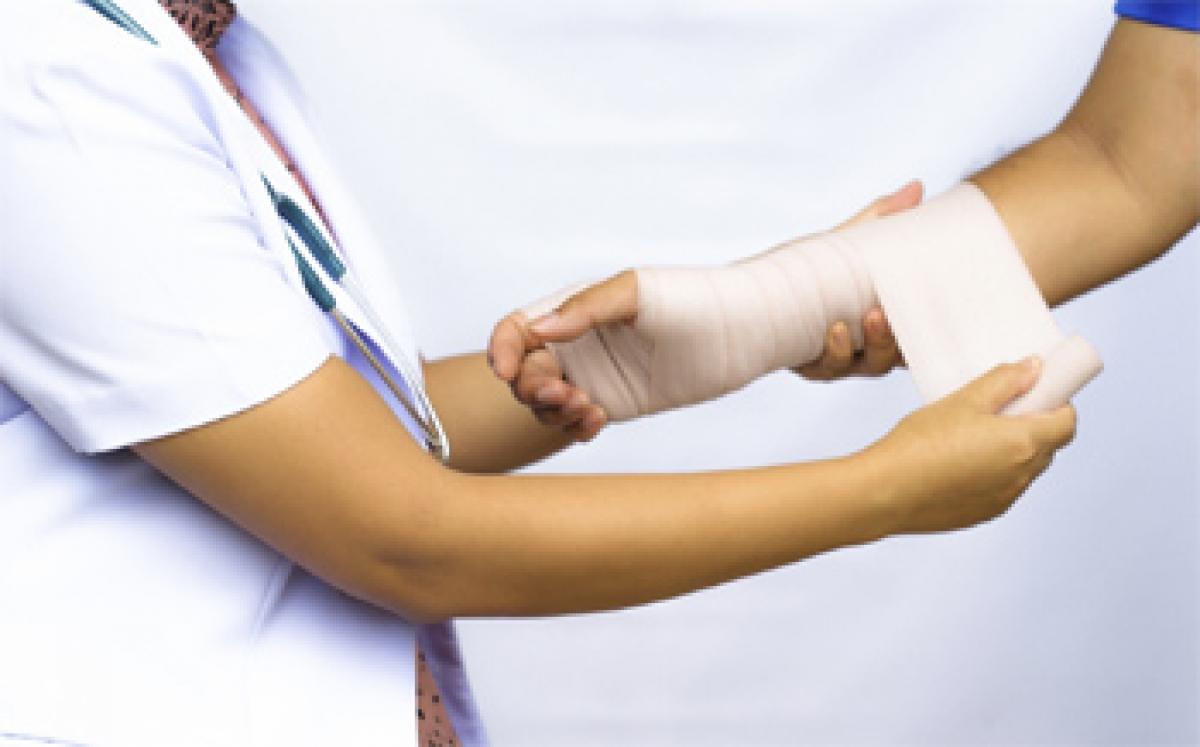Live
- 2% growth in core sectors’ output in Sept
- 8 cases filed for hoax bomb threats to flights at Hyd Airport
- NSE client base widens over 20 cr
- Jewellery demand shines on import duty cut: WGC
- DIWALI BONANZA: TG govt hikes DA by 3.64%
- SPF takes over Sectt security
- Teen’s head chopped off in Uttar Pradesh
- Amit Shah ordered violence: Canada
- Flat buyers cheated : Court orders fresh probe against Gambhir in cheating case
- Create your own path beyond the conventional - YouTuber and actress Jumana Abdu Rahman
Just In

x
Highlights
Although using soap and water has remained the standard practice of wound cleaning before surgery, this method is actually less effective than just using saline water, say researchers, including one of Indian-origin.
Although using soap and water has remained the standard practice of wound cleaning before surgery, this method is actually less effective than just using saline water, say researchers, including one of Indian-origin.
The findings could lead to significant cost savings, especially in developing countries where open fractures are particularly common.
"There has been a lot of controversy about the best way to clean the dirt and debris from serious wounds with bone breaks," said principal investigator Mohit Bhandari, professor at McMaster University in Canada.
"All wounds need to be cleaned out -- a process known as debridement -- but evidence shows that cleaning wounds with soap was not better than just water, which was unexpected," Bhandari noted.
As part of the study, 2,400 people with open arm or leg fractures had their wounds cleaned with either soap and water, or a saline water solution, and one of three different levels of water pressure.
Patients were monitored to see who would need to have an additional operation within 12 months because of infection or problems with wound healing.
The researchers found that very low water pressure was an acceptable, low-cost alternative for washing out open fractures, and that the reoperation rate was higher in the group that used soap.
"These findings may have important implications for the care of patients with open fractures worldwide since developing countries deal with a disproportionate number of cases," one of the study's co-authors Edward Harvey from McGill University noted.
"Most of the time we were using soap and water with a high pressure delivery system to clean the wound, but now we don't, and that makes the best practice much cheaper."
The study involved patients across 41 sites in the US, Canada, Australia, Norway and India.
The majority of patients were men in their 40s with a lower extremity fracture, and the most common reason for the injury was a motor vehicle accident.
The findings were detailed in the New England Journal of Medicine.

Next Story
More Stories
ADVERTISEMENT
© 2024 Hyderabad Media House Limited/The Hans India. All rights reserved. Powered by hocalwire.com







